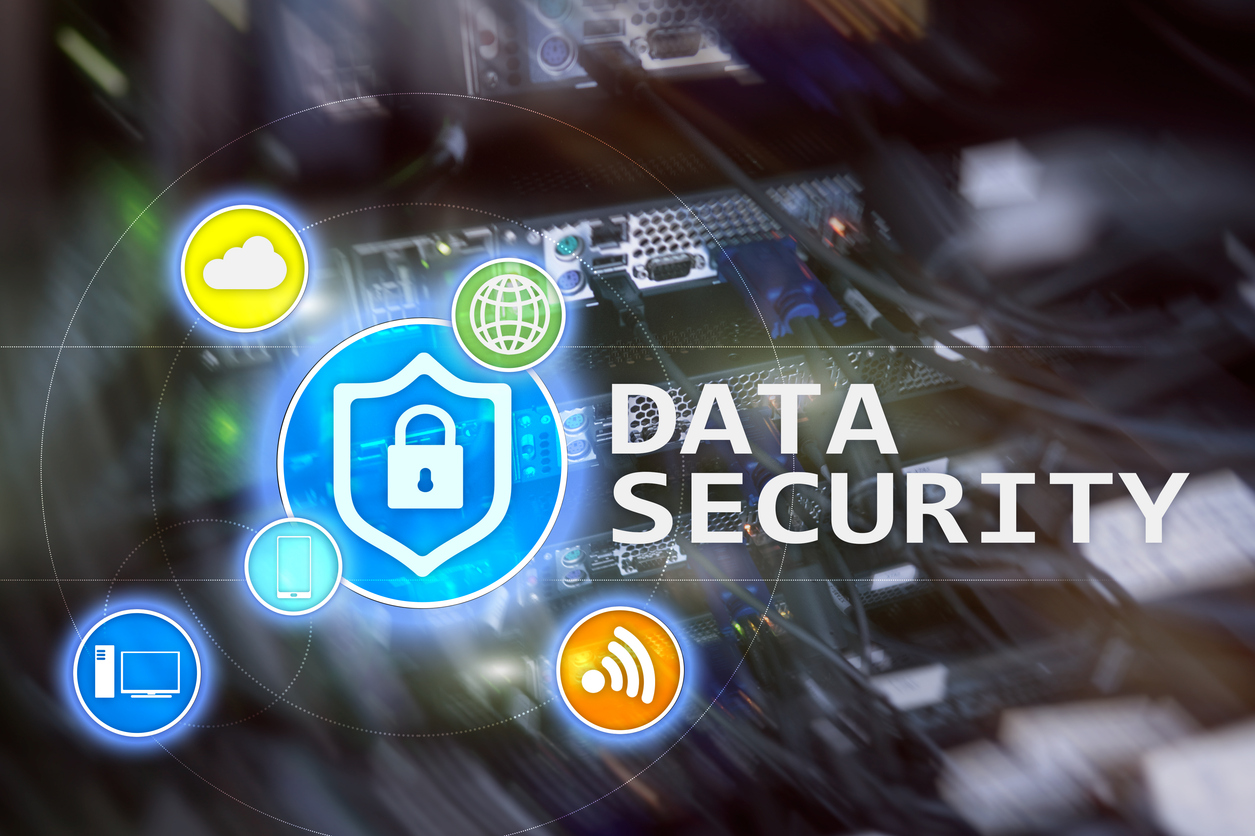3 min read
Safeguarding Your Digital Assets : Strategies for Effective Cybersecurity
With the increasing frequency and sophistication of cyber threats, protecting your digital assets and sensitive information is more important than...
6 min read
 The Amazing Team at Force One
:
Apr 26, 2024 6:24:26 AM
The Amazing Team at Force One
:
Apr 26, 2024 6:24:26 AM
In today's digital age, cybersecurity has become a critical field with a high demand for skilled professionals. Aspiring individuals looking to enter the cybersecurity industry in USA have two main education options to choose from: cybersecurity degrees and bootcamp certificates. Both options offer unique benefits and drawbacks, and it is essential to explore each to make an informed decision.
Cybersecurity degrees in USA are typically offered by universities and colleges and provide a comprehensive and structured education in various aspects of cybersecurity. These degrees are often more in-depth and cover a wide range of topics such as network security, cryptography, risk management, ethical hacking, and more. Students pursuing a cybersecurity degree can expect to gain a deeper understanding of the theoretical concepts and principles behind cybersecurity.
On the other hand, bootcamp certificates are intensive, short-term programs that focus on practical, hands-on training. These bootcamps are designed to quickly equip individuals with the necessary skills to enter the cybersecurity workforce. Bootcamps often have a more specific focus, such as ethical hacking or penetration testing, and are structured to provide immediate job readiness.
When exploring cybersecurity education in USA options, it is crucial to consider factors such as personal learning style, career goals, and time availability. Let's dive deeper into the specifics of both cybersecurity degrees and bootcamp certificates to understand their differences and make an informed decision.
Cybersecurity degrees are typically offered as bachelor's or master's programs by universities and colleges. These degrees provide a comprehensive education that covers both theoretical and practical aspects of cybersecurity. Here are some key points to consider when it comes to cybersecurity degrees:
- Extensive curriculum: Cybersecurity degree programs usa often cover a wide range of topics, including network security, cryptography, secure software development, incident response, and more. Students gain a deep understanding of the foundational concepts and principles behind cybersecurity.
- Rigorous academic environment: Pursuing a cybersecurity degree involves completing coursework, assignments, and examinations. This academic environment helps develop critical thinking and problem-solving skills, necessary for a successful career in cybersecurity.
- Long-term commitment: Cybersecurity degree programs in usa typically span over several years, with bachelor's degrees taking around four years to complete and master's degrees taking an additional two years. This longer time commitment allows for a more in-depth exploration of cybersecurity topics.
- Recognized credentials: Cybersecurity degrees from reputable institutions carry weight in the job market and are often preferred by employers. These degrees provide a solid foundation and can open doors to a wide range of cybersecurity career opportunities.
Bootcamp certificates offer a more streamlined and focused approach to cybersecurity education in america. These intensive programs provide hands-on, practical training in specific cybersecurity areas. Here are some key points to consider when it comes to bootcamp certificates:
- Practical skills: Bootcamp certificates focus on teaching the practical skills required in the cybersecurity industry. These programs often include real-world scenarios, simulations, and hands-on exercises to help students gain practical experience.
- Short duration: Unlike cybersecurity degrees, bootcamp certificates are typically shorter in duration, ranging from a few weeks to a few months. This makes them a popular choice for individuals looking to enter the workforce quickly.
- Job readiness: Bootcamps are designed to prepare students for immediate job placement. The curriculum is often tailored to meet industry demands, ensuring graduates are equipped with the most relevant skills and knowledge.
- Specialized focus: Bootcamps often have a more specific focus, such as ethical hacking, penetration testing, or cybersecurity analytics. This allows students to specialize in a particular area of cybersecurity based on their interests and career goals.
One of the key differences between cybersecurity degrees and bootcamp certificates lies in the curriculum and depth of knowledge gained. Cybersecurity bootcamps offer a comprehensive education that covers a wide range of topics, providing a deep understanding of the theoretical aspects of cybersecurity. On the other hand, bootcamp certificates focus on practical skills and specific areas of cybersecurity.
Cybersecurity degree programs typically include courses in network security, cryptography, secure software development, risk management, incident response, and more. Students gain a well-rounded education and develop a solid foundation in cybersecurity principles. This comprehensive curriculum allows for a deeper understanding of the field and prepares students for a wide range of cybersecurity roles.
Bootcamp certificates, on the other hand, have a more focused curriculum that emphasizes hands-on training and practical skills. These programs often cover topics such as ethical hacking, penetration testing, or cybersecurity analytics. While the curriculum may be more limited in scope, bootcamps provide targeted education that prepares students for specific job roles in the industry.
Ultimately, the choice between a cybersecurity degree and a bootcamp certificate depends on the individual's career goals and learning preferences. Those seeking a broader understanding of cybersecurity and aiming for a variety of job opportunities may lean towards a degree program. Meanwhile, individuals looking to quickly gain job-ready skills in a specific area of cybersecurity may find bootcamps to be a more suitable option.
Cost and time investment are significant factors to consider when choosing between a cybersecurity degree and a bootcamp certificate. Here's a closer look at both options:
Cybersecurity degrees, being university or college programs, often come with a higher price tag compared to bootcamp certificates. Tuition fees for a four-year bachelor's degree or a two-year master's degree can add up, and students may also need to consider additional expenses such as textbooks, equipment, and living costs. However, scholarships, grants, and financial aid options may be available to help alleviate some of the financial burden.
Bootcamp certificates, on the other hand, are generally more cost-effective. These programs are often shorter in duration, leading to lower tuition fees. Additionally, bootcamp students can potentially save on living expenses as some programs offer online or part-time options. It is important to research and compare the costs of different bootcamp programs to find the most affordable and reputable option.
In terms of time investment, cybersecurity degrees require a longer commitment. Bachelor's degrees typically take around four years to complete, while master's degrees add an additional two years. This longer duration allows for a more comprehensive education but may not be ideal for individuals looking to enter the workforce quickly. Bootcamp certificates, on the other hand, can be completed in a matter of weeks or months, providing a faster path to job readiness.
Considering both cost and time investment is crucial when deciding between a cybersecurity degree and a bootcamp certificate. It is essential to weigh the financial implications and time commitments against the desired career goals and personal circumstances.
When it comes to job opportunities and career growth, both cybersecurity degrees and bootcamp certificates can open doors to a wide range of possibilities. Here's what to consider:
Cybersecurity degrees from reputable institutions carry weight in the job market and are often preferred by employers. These degrees provide a well-rounded education and a solid foundation in cybersecurity principles, making graduates suitable for various cybersecurity roles. With a cybersecurity degree, individuals can pursue careers such as cybersecurity analyst, security consultant, information security manager, or even cybersecurity researcher. These roles often come with competitive salaries and opportunities for career advancement.
Bootcamp certificates, while more focused, can also lead to promising job opportunities. Many bootcamps have partnerships with industry employers, which can facilitate job placement for graduates. Bootcamp graduates often find employment as ethical hackers, penetration testers, security analysts, or cybersecurity specialists. These roles may offer a faster entry into the industry and can provide valuable hands-on experience that can lead to career growth.
Both cybersecurity degrees and bootcamp certificates can contribute to a successful career in cybersecurity in usa. The choice between the two depends on factors such as personal learning style, career goals, and time availability. Some individuals may choose to pursue a cybersecurity degree to gain a deeper understanding of the field and explore various job opportunities, while others may opt for a bootcamp certificate to quickly acquire job-ready skills in a specific area of cybersecurity.
In conclusion, the cybersecurity field offers multiple education paths, each with its own advantages and considerations. By carefully evaluating the curriculum, depth of knowledge, cost, time investment, job opportunities, and career growth potential, individuals can make an informed decision between pursuing a cybersecurity degree or obtaining a bootcamp certificate.
Also Read: What Is The Highest Paying Job In Cybersecurity?
If you're interested in more job tips and ways to advance your career in the cybersecurity field, check out more details at ForceOne Cybersecurity. Together, we can build a safer digital future.
Cybersecurity Microcredentials - ForceOne Cybersecurity
Cybersecurity Governance Risk and Compliance Course
Cyber Incident Response | Cybersecurity Bootcamp by ForceOne Cybersecurity
Cybersecurity certification in Medical Devices and network Security Apps
Cloud Cybersecurity – Cloud Risks
Cybersecurity Supply Chain Risk Management and Compliance Course in USA
Cyber & Energy Network Defense Certificate - ForceOne Cybersecurity
FAQs
What are the main differences between a cybersecurity degree and a bootcamp certificate?
A cybersecurity degree offers a comprehensive, theoretical understanding over several years, while a bootcamp certificate provides practical, job-ready skills in a shorter time frame.Which is more cost-effective, a cybersecurity degree or a bootcamp certificate?
Bootcamp certificates are generally more cost-effective due to their shorter duration and focused curriculum.Can a bootcamp certificate lead to immediate job opportunities in cybersecurity?
Yes, bootcamp certificates are designed to equip students with practical skills for immediate job placement in specific cybersecurity roles.What kind of job roles can I pursue with a cybersecurity degree?
With a cybersecurity degree, you can pursue roles such as cybersecurity analyst, security consultant, information security manager, or cybersecurity researcher.Which option is better for someone looking to quickly enter the cybersecurity field?
A bootcamp certificate is ideal for individuals looking to quickly acquire practical skills and enter the cybersecurity field.

3 min read
With the increasing frequency and sophistication of cyber threats, protecting your digital assets and sensitive information is more important than...

3 min read
Cybersecurity: Safeguarding the Digital WorldIntroduction:In an era where our lives are increasingly intertwined with digital technologies, the need...

3 min read
Cybersecurity Jobs Remote: Defining the Future of Security in a Connected WorldIntroduction:In today's digital era, where reliance on technology is...